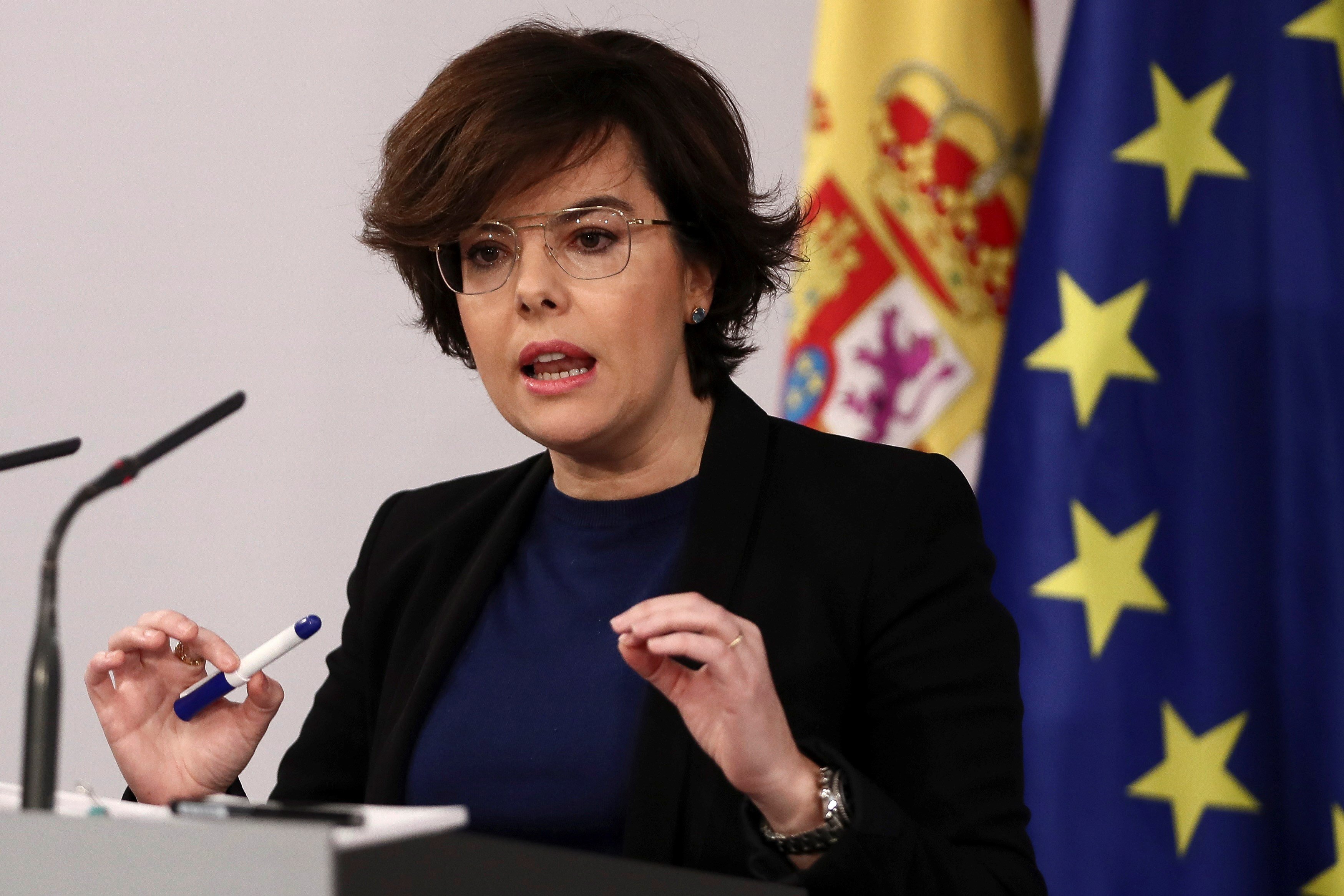The Spanish prime minister, Mariano Rajoy, has asked the Council of State, the country's highest-ranking consultative body, for a report to be able to challenge Carles Puigdemont's candidacy for investiture as president of Catalonia to the Constitutional Court. According to the deputy prime minister, Soraya Sáenz de Santamaría, who gave a press conference this Thursday in Madrid, the filing is based on Puigdemont "lacking freedom of movement", a status "incompatible with his appearance before the chamber" because he has an arrest warrant hanging over him if he were to come back to Spanish territory.
"The question is not whether Mr Puigdemont is going to come to Spain or not", said Santamaría to clarify that they aren't trying to guess his intentions, but that the new Parliament speaker, Roger Torrent, signed on 22nd January the order proposing, as candidate for the presidential investiture debate, Puigdemont, "a person who does not have full rights". The central government's actions are based on article 161.2 of the Constitution, which allows them to "contest before the Constitutional Court the provisions and resolutions adopted by the agencies of the Autonomous Communities".
Secondly, Rajoy has presented a request to the Council of State to pronounce on the question of whether it's possible to carry out an investiture without Puigdemont present in person, in case the Parliament's Board accepts the idea. He also asks whether it's possible for them to accept proxy votes on behalf of the deputies in Belgium. The report, according to the deputy prime minister, is to help the executive to challenge everything before the Constitutional Court, as the government is required to have reports from the Council of State to present appeals.
Sources from the executive say that the decision was known by the government's PP party and the Catalan branch of the opposition PSOE, PSC. Sources from the latter add that the party's national secretary general, Pedro Sánchez, who has expressed his support for Rajoy over Catalonia, was also aware of it. Nobody spoke of Ciutadans, the pro-union largest party in the Catalan Parliament. While last week the prime minister planned to wait for Torrent to issue an order recognising the need to use some sort of communication technology (which would enable an immediate appeal to the Constitutional Court by falling outside the chamber's rules), now the government wants to set up its obstacles before the event.
As a result, the executive trusts the operation will be a success, that another candidate will have to be proposed for the investiture debate, that the Parliament's Board and speaker will feel dissuaded by the fear of criminal actions by the public prosecutor. "I hope that Mr Torrent starts by accepting the legal decisions," warned Santamaría. She also criticised Torrent for having travelled to Brussels to meet with Puigdemont, as it didn't take place in the Parliament, like his meetings with the other parties, and called for "respect for the citizens".
As for the time frame, government sources say that presenting the appeal will automatically suspend Puigdemont's candidacy, once it's been accepted for consideration by the court, without having to wait for them to decide on their verdict. "But [the Catalans] are used to deciding it in a weekend", say the sources, recalling Puigdemont's original fast-track investiture after the failure of Artur Mas' candidacy. To find out the definitive answer on whether the candidacy of a deputy abroad is constitutional or not will have to wait until the final verdict.

